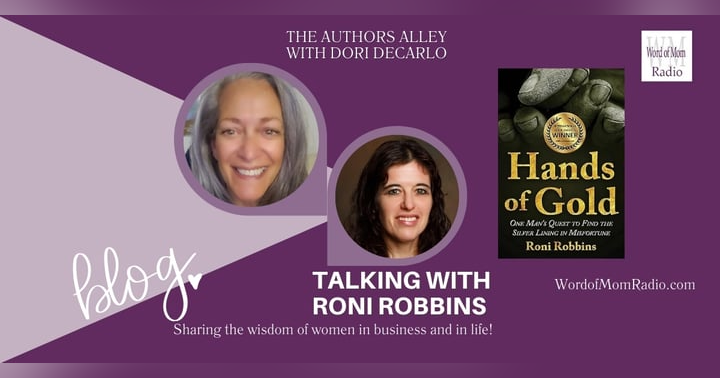The Importance of Postpartum Support and Care

Welcome! This blog post delves into the crucial aspects of postpartum support and care, a topic extensively discussed in our latest podcast episode, Kristin Revere Brings Supported to The Authors Alley with Dori DeCarlo. We'll explore the vital role of postpartum doulas and highlight the physical and emotional needs of new mothers, emphasizing how proper postpartum support significantly impacts both the mother's and baby's well-being.
Understanding the Postpartum Period: More Than Just "Baby Blues"
The postpartum period, extending from childbirth until roughly six weeks later, is often misrepresented as a simple adjustment period. While societal expectations often minimize the challenges faced by new mothers, the reality is far more complex. This phase involves a cascade of physical and hormonal changes, leaving many women feeling overwhelmed, vulnerable, and even isolated. The physical recovery includes healing from childbirth, managing potential complications like postpartum hemorrhage or infection, and coping with sleep deprivation. Beyond the physical, the emotional rollercoaster is significant. Many women experience the "baby blues," a transient period of mood swings, but others may grapple with postpartum depression or anxiety, conditions that require professional intervention.
The Physical Realities of Postpartum Recovery
The physical demands on a woman's body after childbirth are substantial. Vaginal delivery can cause tearing, swelling, and discomfort. Cesarean sections require a more extensive recovery period, often accompanied by pain management challenges and a longer healing process. Hormonal shifts contribute to fatigue, mood swings, and changes in appetite and libido. Breastfeeding, while a natural and rewarding experience for many, can also present physical challenges, including sore nipples, mastitis (breast infection), and milk supply concerns. Understanding and addressing these physical realities is crucial in providing comprehensive postpartum support.
The Emotional Landscape of Motherhood's Early Days
Beyond the physical recovery, the emotional well-being of the mother is paramount. The postpartum period often brings an intense mix of emotions – joy, exhaustion, anxiety, and even fear. The sheer responsibility of caring for a newborn can be overwhelming, especially for first-time mothers. Sleep deprivation is a significant factor, exacerbating existing emotional vulnerabilities. The societal pressure to "bounce back" quickly can add to the stress, leaving mothers feeling inadequate and judged. The sudden shift in identity, from independent individual to primary caregiver, can be disorienting and emotionally challenging.
Postpartum Depression and Anxiety: Recognizing the Signs
Postpartum depression (PPD) and postpartum anxiety (PPA) are serious mental health conditions that affect a significant number of new mothers. These conditions are not merely "baby blues" and require professional help. Symptoms can include persistent sadness, hopelessness, anxiety, difficulty sleeping, loss of interest in activities, feelings of guilt or inadequacy, and even thoughts of self-harm or harming the baby. Early recognition and intervention are critical to ensure the mother's well-being and the health of her baby. Recognizing these signs in oneself or in others is the first step towards seeking appropriate support.
The Role of Postpartum Doulas: Providing Essential Support
Postpartum doulas are trained professionals who provide invaluable support to new mothers during the postpartum period. Unlike midwives or nurses, who focus primarily on medical care, postpartum doulas offer emotional, physical, and practical assistance. Their role encompasses a wide range of services, including newborn care (feeding, diapering, soothing), light housekeeping, meal preparation, and emotional support for the mother. Crucially, postpartum doulas empower mothers by providing education and guidance, helping them navigate the challenges of the early days of motherhood.
The Benefits of Hiring a Postpartum Doula
The benefits of hiring a postpartum doula are numerous. They provide an extra set of hands, allowing parents to rest and recover. They offer non-judgmental support and create a safe space for mothers to express their feelings and concerns. Doulas can assist with breastfeeding, identifying potential problems and offering solutions. They can also provide valuable education on newborn care, sleep routines, and other essential aspects of parenting. The presence of a supportive doula can significantly reduce stress levels, contributing to improved maternal well-being and a more positive bonding experience between mother and baby.
Building a Support Network: Beyond the Doula
While postpartum doulas play a vital role, a strong support network is essential for a healthy postpartum experience. This network can include partners, family members, friends, healthcare providers, support groups, and online communities. Open communication within this network is key, allowing mothers to express their needs and receive the necessary help. Friends and family can contribute by providing meals, running errands, or simply offering a listening ear. Support groups offer a safe space to share experiences and connect with others who understand the challenges of the postpartum period. Online communities can provide valuable information and resources. This holistic approach ensures that the mother receives the appropriate support she needs across various facets of her experience. Understanding what help is available can make a huge difference in making the postpartum period manageable.
Advocating for Better Postpartum Care
Access to adequate postpartum care varies significantly across different socioeconomic groups and geographical locations. Advocating for improved access to postpartum support, including doula services, is crucial. This involves raising awareness about the importance of postpartum care and working towards policies that ensure every new mother has access to the resources she needs, regardless of her background or location. This includes advocating for expanded health insurance coverage for postpartum doula services, promoting community-based support programs, and destigmatizing mental health issues related to childbirth. This is a collective responsibility which needs greater support and recognition.
Conclusion: Embracing Holistic Postpartum Support
In conclusion, this blog post, mirroring the themes of our podcast episode as Kristin Revere Brings Supported to The Authors Alley with Dori DeCarlo, highlights the critical importance of holistic postpartum support. The postpartum period is a complex and demanding time for new mothers, requiring both physical and emotional care. Postpartum doulas play a crucial role in providing this support, but a comprehensive approach also involves building a strong support network and advocating for better access to care. By understanding the challenges faced by new mothers and implementing strategies to address them, we can create a more supportive and nurturing environment for mothers and their newborns, fostering healthier families and stronger communities.




